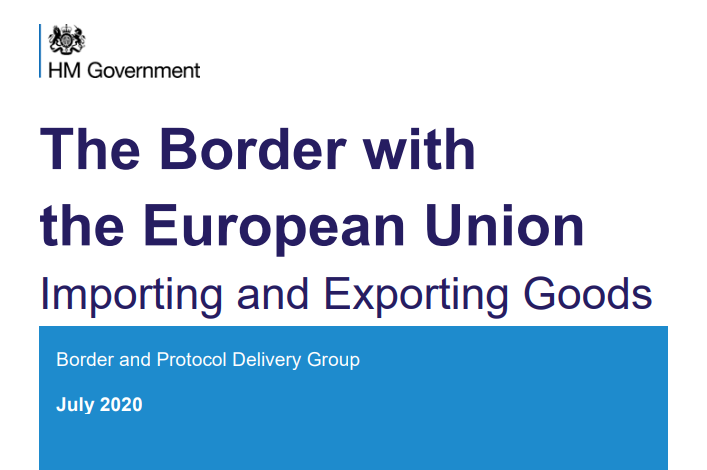
British traders have their work cut out under the government’s new Border Operating Model, an IOE&IT webinar heard yesterday.
This includes deciding who should fill in customs declarations for goods moving from Great Britain into the EU post-transition,
The government announced its border plan for post-transition trade with the EU earlier this week and is spending over £700m in building new infrastructure for it.
Attendance at the webinar was at a capacity 1000 delegates – suggesting a great appetite for knowledge about how the model will work.
Lead presenter and IOE&IT director of stakeholder engagement, Kevin Shakespeare, said business will “have a lot to do” in order to continue trading with the EU from 31 December 2020.
Five key learnings
Here were five key learnings from the webinar – a recording of which you can watch here.
1. Traders are liable for correct declarations…
One of the key questions Shakespeare posed was who will complete the customs declarations that will be required for goods moving between the UK and EU.
Customs declarations are required regardless of whether or not the UK strikes a free trade deal with the EU.
He said a business has to choose between completing the declarations themselves or hiring an intermediary to complete them on their behalf.
However, he reminded firms that the trader remains liable for ensuring the information on a declaration is correct, even if they have hired the services of an intermediary.
2. …but firms are split on who will complete declarations
In another poll held during the webinar, attendees were asked whether they would use an intermediary or complete declarations themselves.
Two fifths said they will hire a customs intermediary, and the same number said they are already able to complete them or will undergo training to learn how.
Shakespeare reminded the audience that the government has provided funding that can go towards the cost of training courses that help businesses to learn how to complete declarations.
The IOE&IT provides several grant-fundable training courses for completing declarations which you can read more about here.
3. Record keeping essential
The government confirmed its plans to introduce import checks and controls in three phases from the start of next year when publishing its BOM paper this week.
Under this plan, declarations can be deferred for up to six months for all imports of standard goods from the EU until July next year but will be introduced earlier in January for controlled goods such as alcohol and tobacco.
Shakespeare was keen to point out that importers deferring declarations will need to keep clear and accurate records to ensure they can complete declarations correctly six months after the import has taken place.
In general, Shakespeare was keen to advise that record keeping will be a key part of the import and export process for EU trade post-transition.
4. Customs authorisations
Shakespeare recommended that certain customs authorisations or ‘special procedures’ will be useful for importers who trade a lot of goods with the EU or for those moving goods through multiple territories.
He mentioned Inward Processing, Customs Warehousing, Transit and Customs Freight Special Procedures as examples of instruments that could simplify the paperwork requirements for importers.
However, he advised that companies planning to use special procedures regularly will need to be authorised by HMRC.
The good news for importers is that a ‘Customs Comprehensive Guarantee’ will not be needed for special procedure authorisation unless specifically required.
When polled on whether business would use customs special procedures after the transition, 40% of the webinar attendees said they would consider doing so while 30% said they already do.
5. Traders believe they are ready for ‘full Brexit’
When asked how prepared they were for new rules for trade with the EU after the transition, over two thirds of respondents said they were either ‘very’ or ‘quite prepared’.
Compared with an Institute of Directors poll published earlier this week, which found that only a quarter of UK businesses felt they were ready, it appears that companies listening to webinars provided by trade bodies like the IOE&IT have a greater optimism about post-transition trade.
Just over a quarter attending yesterday’s webinar said they were not prepared.



